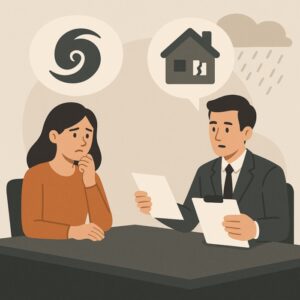Facing hurricane damage can feel overwhelming. You need to file claims with your insurance company, and the process can be challenging. Understanding what steps to take might ease your stress. Gathering evidence, such as photos and receipts, is critical. You should also document conversations with insurance representatives. Knowing your policy inside and out is essential. Policies vary widely, so be aware of what yours covers. Engage with your insurer patiently but firmly. Be persistent yet courteous in your communications. If you run into obstacles, outside help can be invaluable. A New Orleans full-service law firm might offer the guidance you need. They can help you understand legal rights and ensure fair treatment. You deserve a smooth claims process. By staying organized and informed, you can move forward with confidence. Remember, prompt action is crucial after a hurricane. Don’t delay in starting the claims process. Your home deserves protection and restoration.
Understanding Your Insurance Policy
You need to be familiar with your insurance policy. It’s not just about what it covers but also what it doesn’t. Some policies exclude certain types of damage, like flooding. Check if your policy includes wind damage, and if it doesn’t, consider a separate policy. Reviewing your policy regularly is vital, especially as hurricane season approaches. You can find useful guidelines on evaluating your policy by visiting the USA.gov website.
Documenting the Damage
After a hurricane, document the damage immediately. Use your phone to take clear photos and videos. Capture each room and affected exterior areas. Record any conversations with insurance reps. File all receipts for temporary repairs. This documentation supports your claim and speeds up the process. Here’s a comparison table to guide you on what to document:
| Documentation Type | Details to Include |
| Photos | Wide shots of each room, close-ups of damage |
| Receipts | Temporary repairs, accommodation, food expenses |
| Videos | Walkthrough of affected areas, include audio descriptions |
| Conversations | Notes on dates, names, and summaries of discussions |
Filing Your Claim
Once you have documented everything, file your claim quickly. Contact your insurance company and inform them of the damage. Use their preferred method, whether online or by phone. Provide them with the documentation you gathered. Keep notes on each conversation. Filing promptly is crucial as many claims are processed on a first-come-first-served basis. The FEMA website offers additional tips on how to file claims effectively.
Communicating with Your Insurance Company
Effective communication with your insurance company is key. Be clear and concise in your descriptions. If an adjuster visits your home, walk them through the damage. Answer their questions honestly. Keep copies of all correspondence. If there are disagreements over the claim, handle them calmly and seek clarification. Sometimes claims are denied or underpaid. In such cases, don’t hesitate to ask for a detailed explanation from your insurer.
Seeking Professional Help
If you encounter difficulties during the claims process, consider seeking professional advice. Legal professionals can help if you face denial or delays. An experienced New Orleans full-service law firm can guide you through legalities. They can negotiate with insurers on your behalf, ensuring your rights are upheld.
Steps to Take Post-Claim
Once your claim is approved, focus on repairs. Hire reputable contractors. Check references and compare quotes. Don’t pay for the entire job upfront. Instead, arrange for payments to be made as work progresses. As repairs begin, keep communicating with your insurer. Update them on progress and any additional costs.
Conclusion
Handling a hurricane damage claim requires promptness and organization. Understanding your policy, documenting damage, and maintaining open communication with your insurer will make the process smoother. If challenges arise, professional help is available. You and your home deserve the best care and restoration. Remember to act quickly, be well-informed, and seek support when needed.


